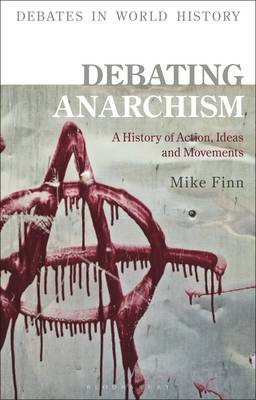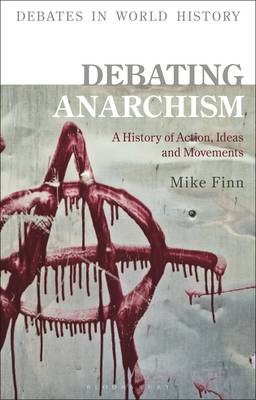
Bedankt voor het vertrouwen het afgelopen jaar! Om jou te bedanken bieden we GRATIS verzending (in België) aan op alles gedurende de hele maand januari.
- Afhalen na 1 uur in een winkel met voorraad
- In januari gratis thuislevering in België
- Ruim aanbod met 7 miljoen producten
Bedankt voor het vertrouwen het afgelopen jaar! Om jou te bedanken bieden we GRATIS verzending (in België) aan op alles gedurende de hele maand januari.
- Afhalen na 1 uur in een winkel met voorraad
- In januari gratis thuislevering in België
- Ruim aanbod met 7 miljoen producten
Zoeken
€ 152,95
+ 305 punten
Uitvoering
Omschrijving
This timely book introduces readers to anarchism's relationship to broader history, offering not only a history of anarchism in the modern period, but a critical introduction to debates on anarchist history. Attention thus far has been biased towards intellectual history and key thinkers such as Proudhon, Bakunin and Kropotkin, but these studies have neglected the social movements and spaces which have seen 'anarchy in action' and marginalised the role of women and voices beyond Europe and the United States.
Debating Anarchism offers a different perspective, engaging with women's anarchist experiences and grounding recent historical work on anarchism in a global perspective. Interrogating anarchism as a concept, a movement and a social reality the author guides the reader through the origins of anarchism in the age of revolutions, assessing experiences of anarchy in Russia, Spain, India and beyond. Tracing the development of 'the beautiful idea' through the 20th century, Finn explores anarchism in the Cold War world through to postmodernity and the 21st century. This volume situates anarchism in the broader historiographies of the modern world, offering a unique starting point for students of history, politics and philosophy seeking to understand the abiding power of 'the beautiful idea' - a society without government.
Debating Anarchism offers a different perspective, engaging with women's anarchist experiences and grounding recent historical work on anarchism in a global perspective. Interrogating anarchism as a concept, a movement and a social reality the author guides the reader through the origins of anarchism in the age of revolutions, assessing experiences of anarchy in Russia, Spain, India and beyond. Tracing the development of 'the beautiful idea' through the 20th century, Finn explores anarchism in the Cold War world through to postmodernity and the 21st century. This volume situates anarchism in the broader historiographies of the modern world, offering a unique starting point for students of history, politics and philosophy seeking to understand the abiding power of 'the beautiful idea' - a society without government.
Specificaties
Betrokkenen
- Auteur(s):
- Uitgeverij:
Inhoud
- Aantal bladzijden:
- 296
- Taal:
- Engels
- Reeks:
Eigenschappen
- Productcode (EAN):
- 9781350118119
- Verschijningsdatum:
- 9/09/2021
- Uitvoering:
- Hardcover
- Formaat:
- Genaaid
- Afmetingen:
- 140 mm x 216 mm
- Gewicht:
- 489 g

Alleen bij Standaard Boekhandel
+ 305 punten op je klantenkaart van Standaard Boekhandel
Beoordelingen
We publiceren alleen reviews die voldoen aan de voorwaarden voor reviews. Bekijk onze voorwaarden voor reviews.









